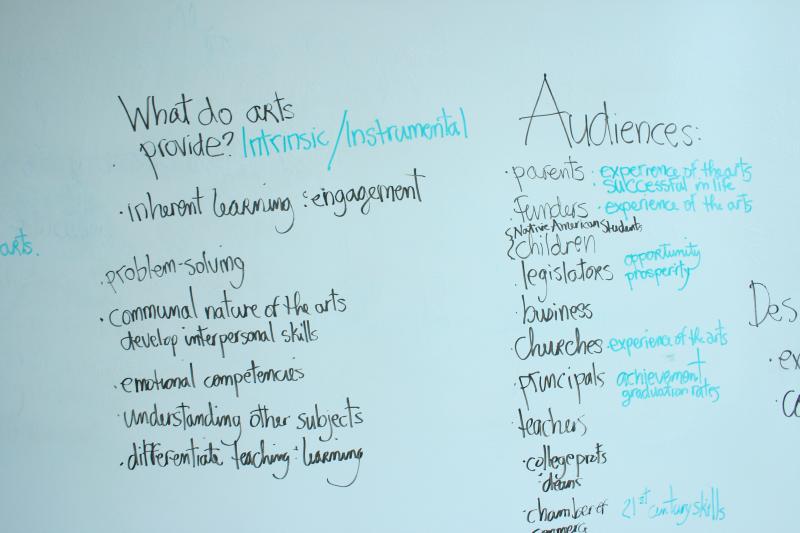2007

“It really is amazing what can happen when you bring a group of passionate, intelligent people together around the subject, and you come up with solutions that you never could have dreamed of in isolation.” So stated one participant of the NEA’s Education Leaders Institute (ELI), a program to bring together executive-level, cross-sector state teams to explore and discuss key questions about advancing arts education in the nation.
Announced in March 2007, ELI used the successful structure of the NEA’s Mayors’ Institute on City Design to structure the program—bringing in key players for two-and-a-half days to discuss arts education problems specific to their localities. The Illinois Arts Council was a key partner, administering the meetings in Chicago, Illinois. Over a five-year period, teams from 29 states participated in ELI, with eight of these teams returning to attend an ELI Alumni Summit in December 2012.
The first institute took place in 2008. State teams presented on the unique challenges faced by their states. Provocative speakers and reading assignments challenged participants’ current thinking as they explored a wide range of issues, including opportunities for galvanizing public will, the role of technology, and approaches for developing regional support for arts education. Breakout sessions within and across state teams provided opportunities to explore how the speakers’ ideas and the issues raised in the reading assignments addressed state needs. The speakers, readings, and the new insights served as the foundation for each state team to affirm, revise, or completely re-imagine their question and possible solutions. Each state team then developed a roadmap for actions to take once they returned home.
The purpose of the 2012 summit was to share progress, challenges, and lessons learned, as well as deepen understanding of the critical elements necessary to advance arts education. Representatives from Alabama, California, Louisiana, Missouri, Nebraska, North Carolina, Oklahoma, and Wisconsin attended. Four major findings emerged from the summit for advancing arts education: cross-sector collaboration, systemic change, building consensus for sustained commitment, and aligning priorities. These findings align with the framework of collective impact, which is guiding the NEA’s strategy for arts education. A full report detailing the results of the summit can be found on the NEA website.

